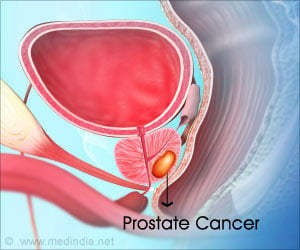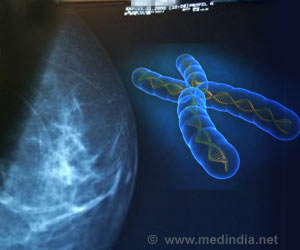A set of 14 genes have been identified which could act as biomarkers for cancer prognosis, higher the score worse the prognosis.
Highlights
- Centromere gene expression score (CED) identified as key biomarker for cancer.
- High CES signals poor prognosis
- High level of chromosome instability leads to better response to adjuvant therapy
Scoring System for Cancer Prognosis
The University of Berkeley researchers found 14 genes that were over expressed in various types of cancer and they developed a scoring system that could identify the prognosis of cancer. The scoring system that these researchers developed aided in identifying these two factors- In some forms of cancer like in lung cancer or breast cancer, a high score could signify poor prognosis.
- The scoring system could be used to accurately determine the response of patients to cancer treatments.
Side Effects of Chemotherapy
Cancer cells are essentially the body’s own cells, which is why the body’s immune system is unable to fight against the cancer cells. In chemotherapy, growing, active cells are targeted in a bid to kill all cancer cells. As a result, other active and growing cells of the body are also killed which include cells in the blood, mouth and hair follicles.
The patients could suffer from:
- Pain
- Nausea
- Vomiting
- Lowered immunity
- Anemia
- Numbness or weakness in the leg
- Sores in the mouth
- Nervous problems that could result in an inability to walk properly or feeling of being disoriented.
- Loss of memory
Side Effects of Radiation Therapy
- Stiffness of the jaw
- Shortness of breath
- Nausea
- Vomiting
- Diarrhea
Genes that Regulate Centromere and Kinetochores
The team of Berkeley University researchers found a particular centromere protein was over expressed in fruit flies which led to additional attachment sites. The significance of studying these additional centromeres is given by Dr. Karpen "This essentially makes new centromeres functional at more than one place on the chromosome, and this is a huge problem because the spindle tries to connect to all the sites. If you have two or more of these sites on the chromosome, the spindles are pulling in too many directions, and you end up breaking the chromosome during cell division. So over expression of these genes may be a major contributing factor to chromosomal instability, which is a hallmark of all cancers."Though the presence of a large amount of chromosome instability in cancers is well known, the effect of centromeres in chromosome instability has never been studied. The researchers accessed information from The Broad Institute, National Center for Biotechnology Information and other institutions and analyzed data from thousands of human tumors from more than 12 types of cancers. The researchers studied 31 genes for their role in tumorigenesis.
- 14 genes were over expressed consistently in cancers.
- The kinetochore gene expression score strongly correlated with whether the patient survived after 5 years.
- The presence of a high number of these genes indicated that the patient would respond better to chemotherapy and radiotherapy.
- With respect to chromosome instability
- Presence of low to medium level of chromosome instability could make the cancer thrive.
- High level of instability makes the cancer cells more susceptible to cancer treatment.
There are a number of studies that are carried out to improve treatment options for cancer and to understand the mechanism of cancer development. The presence of a set of guidelines or a benchmark using the CES could soon save some cancer patients from unnecessary adjuvant treatment which give rise to side effects.
References:
- Side Effects of Chemotherapy - (http://www.cancer.net/navigating-cancer-care/how-cancer-treated/chemotherapy/side-effects-chemotherapy)
- Radiotherapy side effects - (http://www.cancerresearchuk.org/about-cancer/cancers-in-general/treatment/radiotherapy/side-effects/)














